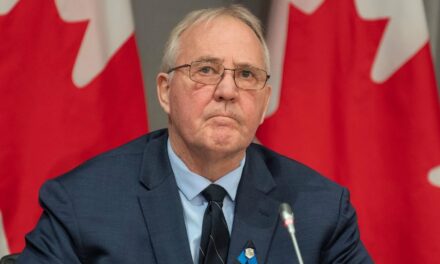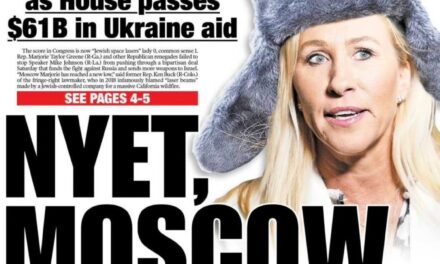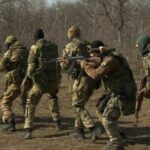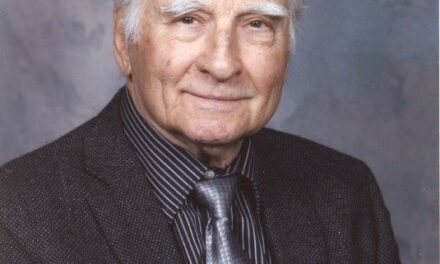Marco Levytsky, Western Bureau Chief.
It was to have been the tenth time powerful nations consulted on how not to blow each other up. The meeting is formally known as the Tenth Review Conference of the Treaty on the Non-Proliferation of Nuclear Weapons (NPT). Scheduled to take place in New York January 4th, it was cancelled because of the Covid pandemic: the third such postponement in a year.
Nevertheless, on the day before this review had been scheduled to begin, the world's five leading nuclear powers, France, the United States, Russia, China, and the United Kingdom — all permanent members of the United Nations Security Council, and signatories of the NPT — issued a rare joint statement in which they said they were determined to prevent nuclear war and avoid a nuclear arms race, adding that “a nuclear war cannot be won and must never be fought.”
“In view of the far-reaching consequences of the use of nuclear weapons, we also affirm that they, as long as they exist, must be used for defensive purposes, deterrence and prevention of war. We firmly believe in the need to prevent the further spread of these weapons,” it said.
This seems to be quite an empty statement when one of these powers, the Russian Federation, has already invaded Ukraine, while another, the Peoples’ Republic of China is threatening to do the same to Taiwan. In fact, on January 5, the day after the review had been scheduled for, the United States and its EU partners yet again stepped-up warnings of major consequences if Russia expands its invasion of Ukraine. This is most significant because the fact that Russia has already violated the sovereignty of Ukraine and threatens to do even more is what makes the whole issue of nuclear non-proliferation so problematic. The albatross that hangs around the neck of the NPT is known as the 1994 Budapest Memorandum.
After the dissolution of the Soviet Union, Ukraine held about one third of the Soviet nuclear arsenal, the third largest in the world at the time, as well as significant means of its design and production. It then came under intense international pressure to either destroy the nuclear weapons or transfer them to Russia. One may well ask why was Ukraine singled out in such a way. Ukraine had no history of military expansionism unless one wants to go back over 1,000 years to the reign of Sviatoslav the Conqueror. But it did have a history of being victimized by its expansionist neighbours – Muscovite Russia in particular. And it was Soviet Russia that occupied East Central Europe following the Second World War starting the Cold War in the process. To anyone familiar with the history of both Russia and Ukraine it was painfully apparent that it was Ukraine – not Russia — that needed protection. And it needed protection most of all from Russia itself.
But, for a newborn state which was virtually bankrupt and in dire need of assistance, there was not much choice. As a result, on December 5, 1994, the leaders of Ukraine, Russia, Britain and the United States signed the memorandum in order to provide Ukraine with security assurances in connection with its accession to the NPT as a non-nuclear weapon state. Its first two paragraphs read as follows.
“1. The Russian Federation, the United Kingdom of Great Britain and Northern Ireland and the United States of America reaffirm their commitment to Ukraine, in accordance with the principles of the Final Act of the Conference on Security and Cooperation in Europe, to respect the independence and sovereignty and the existing borders of Ukraine.
“2. The Russian Federation, the United Kingdom of Great Britain and Northern Ireland and the United States of America reaffirm their obligation to refrain from the threat or use of force against the territorial integrity or political independence of Ukraine, and that none of their weapons will ever be used against Ukraine except in self-defence or otherwise in accordance with the Charter of the United Nations.”
However, the Budapest Memorandum did not include any legal obligations for any of the parties to aid Ukraine militarily should this agreement be violated, making it worthless in terms of any tangible protection. And, sure enough, in March 2014 the Russian Federation invaded and illegally annexed Crimea blatantly violating the Budapest Memorandum. The West cried foul, but to no avail. Moscow then proceeded to invade the Donbas with its own troops and proxies. Canada’s former Prime Minister Stephen Harper summarized the situation most succinctly. He said that Ukraine had given up its nuclear weapons “on the basis of an explicit Russian guarantee of its territorial integrity. By breaching that guarantee, President Putin has provided a rationale for those elsewhere who needed little more than that already furnished by pride or grievance to arm themselves to the teeth.”
And that’s why today, the original signatories of the NPT may make as grandiose statements about the need to prevent nuclear proliferation as they wish, but their failure to either adhere to the terms of the Budapest Memorandum or do anything to prevent its violation make these statements worthless.
The failure to live up to the security guarantees promised the country which voluntarily gave up the world’s third largest nuclear arsenal makes the NPT itself a mere façade and gives any rogue nation, or any other nation concerned about its security an open invitation to go forth and proliferate.
Share on Social Media




































